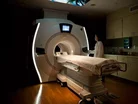GE Healthcare: the future of cybersecurity in healthcare

As the future becomes increasingly more digitally connected, GE Healthcare has launched a new service to help hospitals better protect against cyber threats.
In 2018 alone, 82% of hospital technology experts reported significant security incidents, with the average data breach cost US$7.91mn in the United States.
To help hospitals combat these cybersecurity threats, GE Healthcare has developed a new solution - Skeye - which uses artificial intelligence (AI) and process management tools, to provide proactive monitoring of a hospital's resources and capabilities. Skeye’s monitoring helps detect, analyse and respond to cybersecurity threats and events in real time via a remote security operations center (SOC).
SEE ALSO:
The technology behind the solution
Skeye uses AI to automate connected device inventory and equipment risk profiling across an entire hospital, creating a dynamic management system for device onboarding and decommissioning. AI is also used alongside the SOC to analyse, monitor and manage cybersecurity vulnerabilities.
GE Healthcare describes Skeye as a 360 degree solution that starts with risk assessment, all the way through to real-time networked device discovery, regardless of the age, OEM or operating system of the device. GE Healthcare aims to provide with this solution, complete medical device security assessment to identify risks and vulnerabilities, recommended action plans and advice, as well as execution strategies.
“Our customers need visibility to what medical devices are connected to their networks and the right resources to mitigate potential threats. This new offering provides customers with 360˚ threat visibility and a resolution roadmap to help defend and protect against vulnerabilities,” said Matt Silva, Chief Information Security Officer, GE Healthcare. “Our security operations center can augment customers’ in-house security teams by addressing cybersecurity events, as well as providing the latest information on malware and other malicious threats.”.
For more information on healthcare topics - please take a look at the latest edition of Healthcare Global.
- How Zipline Uses Drones to Deliver Medicine Across AfricaTechnology & AI
- How is Schneider Electric Making the NHS More Accessible?Hospitals
- How DeepHealth is Using AI to Screen for Breast CancerTechnology & AI
- Martin Carpenter: How Tech is Reshaping Healthcare on JerseyDigital Healthcare



